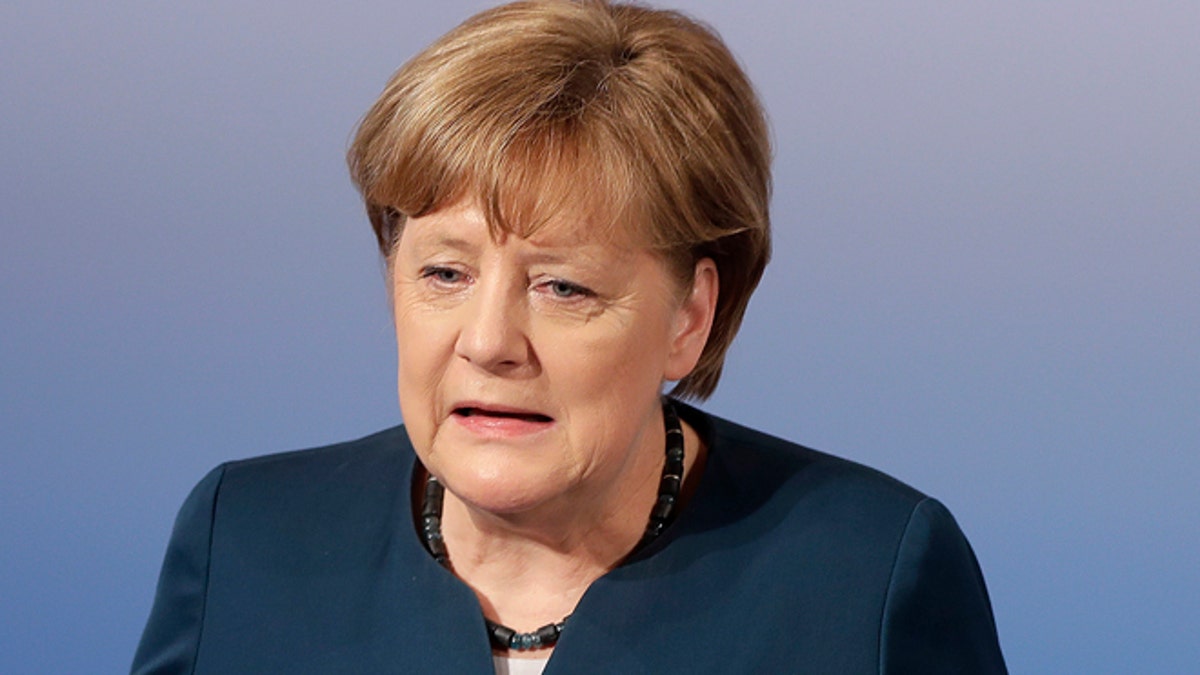
Feb. 18, 2017: German Chancellor Angela Merkel speaks in Munich, Germany. (AP)
BERLIN – Chancellor Angela Merkel's conservative party easily won an election in Germany's western Saarland state on Sunday, an unexpectedly strong performance as Merkel prepares to seek a fourth term in a national vote later this year, projections showed.
The outcome was disappointing for her center-left rivals, the Social Democrats, who were facing their first electoral test since the party's nomination in January of Martin Schulz as Merkel's rival for the chancellery boosted its poll ratings.
Projections prepared for ARD and ZDF public television, based on exit polls and partial counting, showed Merkel's Christian Democrats polling up to 41 percent in the election for Saarland's state legislature. They showed the Social Democrats receiving up to 30 percent of the vote.
Saarland is currently run by a "grand coalition" of the two big parties, similar to Merkel's governing alliance in Berlin. Pre-election polls had suggested a significantly tighter race and indicated that the Social Democrats might be able to form a new left-wing coalition in Saarland, a region of nearly 1 million people on the French border.
Related stories...
That appeared highly unlikely Sunday, as the opposition Left Party — which is traditionally strong in the region — won some 13 percent and the left-leaning Greens looked set to fall short of the 5 percent needed to keep its seats.
The nationalist Alternative for Germany was seen entering the state legislature with 6 percent of the vote. Last year, AfD rode discontent over the influx of migrants to Germany to double-digit performances in several state elections, an issue that has faded somewhat from headlines.
"This is a great start to the election year 2017," said Michael Grosse-Broemer, the chief whip for Merkel's Christian Democrats in Berlin.
He described Sunday's election as a "great success" for Saarland's popular conservative governor, Annegret Kramp-Karrenbauer.
"This election shows that governing calmly ... impresses people in turbulent times," he said.
Kramp-Karrenbauer is one of only five conservative governors in Germany's 16 states.
A loss for her would have been a worrying signal for the national campaign and for two bigger state elections in May — in Schleswig-Holstein and Germany's most populous state, North Rhine-Westphalia, both now led by the Social Democrats. The national election will be held on Sept. 24.
Schulz, a former president of the European Parliament but a newcomer to national politics, has boosted his party's long-moribund poll ratings and injected it with new self-confidence. He is offering a classic, though often vague center-left pitch of tackling economic inequality at home.
His party had hoped for more momentum from Sunday's vote.
